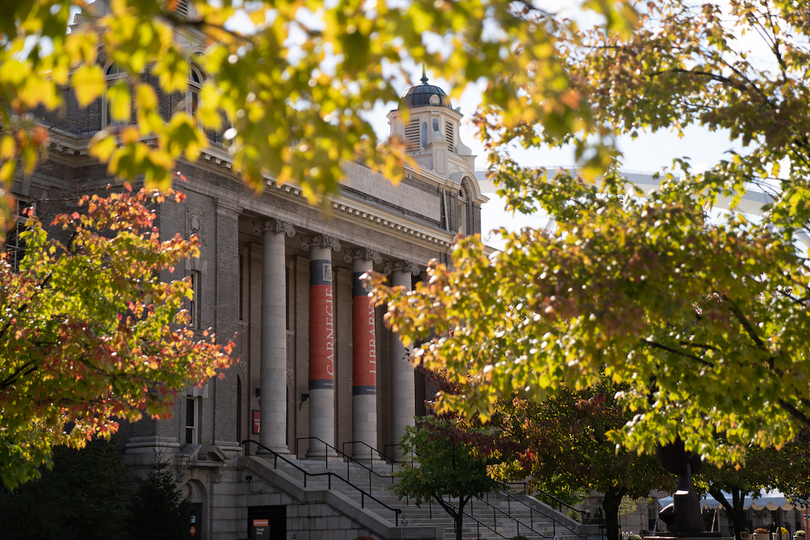Syracuse University is making progress towards sustainability

Emily Steinberger | Photo Editor
The Daily Orange is a nonprofit newsroom that receives no funding from Syracuse University. Consider donating today to support our mission.
New York state’s ban on plastic bags will resume Monday. The law is a pretty big step forward, as New Yorkers use 23 billion plastic bags a year, and the state is one of only eight to ban plastic bags. Syracuse University’s dining halls are not subject to the state’s ban, but the university has implemented its own sustainability measures.
The university is working to find a way to compost the dining hall’s disposable containers and utensils. SU will also establish the New York State Center for Sustainable Materials Management, funded by a five-year, $5.75 million grant from the New York State Department of Environmental Conservation. The investment will fund the research and development of sustainable alternatives for disposing of nonrecyclable materials, such as composting.
But sustainability is an issue that extends beyond the Hill, said Robert Wilson, associate professor of geography and the environment at SU.
“The best way the university could be more environmentally conscious is not from the university, like from top-down, but from students getting more involved in environmental politics and climate politics,” he said.
Over the next 30 years, the United States and most of the world must shift away from using fossil fuels, Wilson said. SU should focus on engaging students and learning about the sustainable change the student body can enact over the next three decades.
The university seems to have adopted that focus, as the university is offering a relatively new major: environment, sustainability and policy. Wilson is an associate professor in the program.
“Right now, we have 100 students, and it’s only been around for probably two years. I think it’s grown so quickly because students have had a real interest in sustainability,” Wilson said.
Beyond the major, there are other options for learning about sustainability, including groups such as Students of Sustainability. The organization aims to “increase sustainability and environmental consciousness” at SU.
For SU senior Helena O’Donnell, sustainability is not a regimented course or club — it’s making a conscious effort three times a day, during breakfast, lunch and dinner.
After O’Donnell watched “Cowspiracy,” a documentary on Netflix, her “eyes were open to the environmental impacts of eating meat, consuming dairy and eggs,” she said.
Animal agriculture is responsible for 18% of greenhouse gas emissions. For comparison, transportation is responsible for 13%.
In addition to greenhouse gases, consuming meat uses a lot of water — producing one pound of beef requires 2,500 gallons of water. Land is not immune to the devastation caused by animal agriculture, either. Animal agriculture is the leading cause of species extinction, ocean dead zones, water pollution and habitat destruction.
“I just thought, I can’t consume these foods (and) buy these foods and products while still preaching to save the environment. That’s just hypocritical,” O’Donnell said.
Plant proteins such as lentils, beans and tofu are inexpensive sources of protein that are more sustainable.
After learning that the state’s ban on plastic bags was back, my concerns surrounding SU’s sustainability efforts were legitimate. But they quickly felt inadequate. I have a responsibility to act sustainably, and so do you.
Whether it’s studying environmental policy, joining sustainability groups or simply trying oat milk instead of cow milk, the responsibility to help the environment belongs to each of us, not just the university.
Rachel Pierce is a senior broadcast and digital journalism and political science major. Her column appears bi-weekly. She can be reached at repierce@syr.edu. She can be followed on Twitter at @rpiercesyr.





